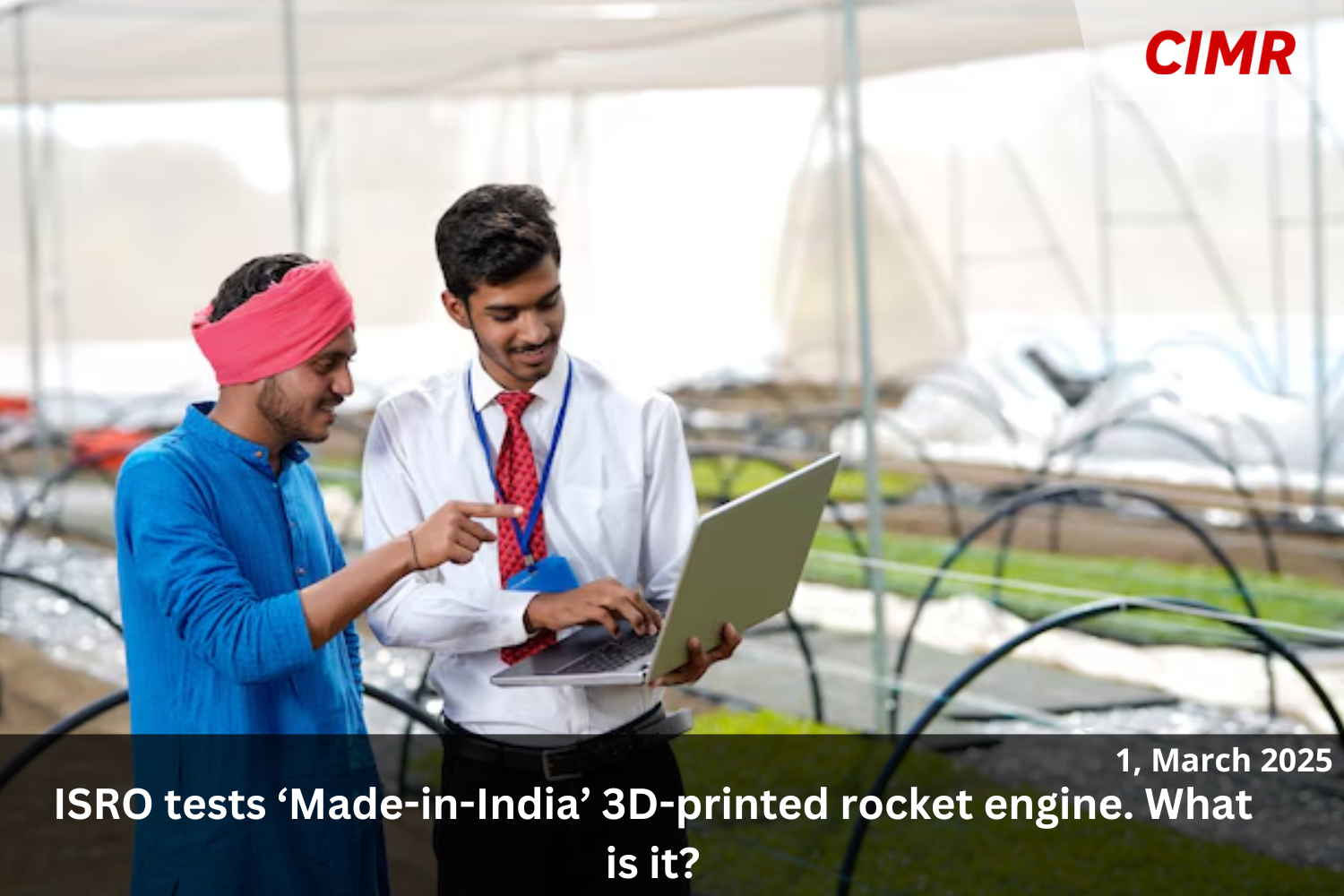The Indian Space Research Organisation (ISRO) tested a liquid rocket engine created using additive manufacturing technology on Thursday, marking a significant accomplishment.
The PS4 engine from the upper stage of the Polar Satellite Launch Vehicle (PSLV) rocket, dubbed “the Workhorse of ISRO,” which has an outstanding record of delivering satellites to Low-Earth Orbits, was utilised in the 665-second test, according to the space agency.
With a vacuum thrust of 7.33 kN, the PS4 engine, which is typically made by machining and welding, is essential to the operation of the PSLV rocket’s fourth stage. When it comes to precisely launching payloads into the designated orbits on the PSLV, the PS4 engine is essential. These days, the space agency uses it more and more as a dependable orbital platform for a range of missions.
The PSLV’s first stage (PS1) response control system also makes use of this same engine. The engine was created by the ISRO division Liquid Propulsion Systems Centre (LPSC) and runs on earth-storable bipropellant combinations, with pressure-fed monomethyl hydrazine serving as the fuel and nitrogen tetroxide as the oxidizer.
Why are the engines for ISRO 3D printing? Five benefits
The PS4 engine has been redesigned by ISRO using the Laser Powder Bed Fusion technology. Significant benefits have resulted from this:
• The engine now only has one piece instead of its original fourteen.19 weld joints have also been removed from the new design. The amount of raw materials used per engine is significantly reduced as a result of this development.
In particular, it lowers the amount of metal powder used in traditional production techniques from 13.7 kg to 565 kg of forgings and sheets. This redesign has also resulted in a 60% reduction in the total manufacturing time.
‘Produced in India’ Three-dimensional rocket motor
An Indian business called WIPRO 3D, which is a division of the well-known Wipro firm, created the engine. WIPRO 3D, a prominent supplier of metal additive manufacturing solutions and services, was founded in 2012.
At the ISRO Propulsion Complex at Mahendragiri, the engine underwent a hot test. It is intended to be incorporated into the standard PSLV curriculum. The Indian Space Research Organisation (ISRO) has successfully tested a fully ‘Made-in-India’ 3D-printed rocket engine.
Marking a major technological advancement in the country’s space exploration capabilities. This indigenous innovation is expected to revolutionize rocket manufacturing by reducing costs and production timelines while enhancing efficiency.
What is a 3D-Printed Rocket Engine?
A 3D-printed rocket engine is manufactured using additive manufacturing technology, where components are built layer by layer from metal powders, eliminating the need for conventional assembly of multiple parts. This method offers several advantages:
- Lightweight and Durable: Reduces the overall weight of the rocket while maintaining structural integrity.
- Faster Production: Significantly cuts down the manufacturing time compared to traditional machining methods.
- Cost-Efficiency: Reduces material waste and production costs, making space missions more economical.
Significance of ISRO’s Test
The successful test of the 3D-printed rocket engine is a milestone for India’s growing space sector. Key takeaways include:
- Enhanced Indigenous Capabilities: Reduces dependency on foreign technology and suppliers.
- Boost to Private Sector Participation: Encourages collaboration with startups and private firms in India’s space industry.
- Potential for Reusable Rockets: Paves the way for cost-effective, reusable launch vehicles, aligning with global trends in space exploration.
With this breakthrough, ISRO is set to integrate 3D-printed components into future missions, bringing India closer to becoming a global leader in next-generation space technology.
Group Media Publication
Construction, Infrastructure and Mining
General News Platforms – IHTLive.com
Entertainment News Platforms – https://anyflix.in/
Legal and Laws News Platforms – https://legalmatters.in/
Podcast Platforms – https://anyfm.in/





